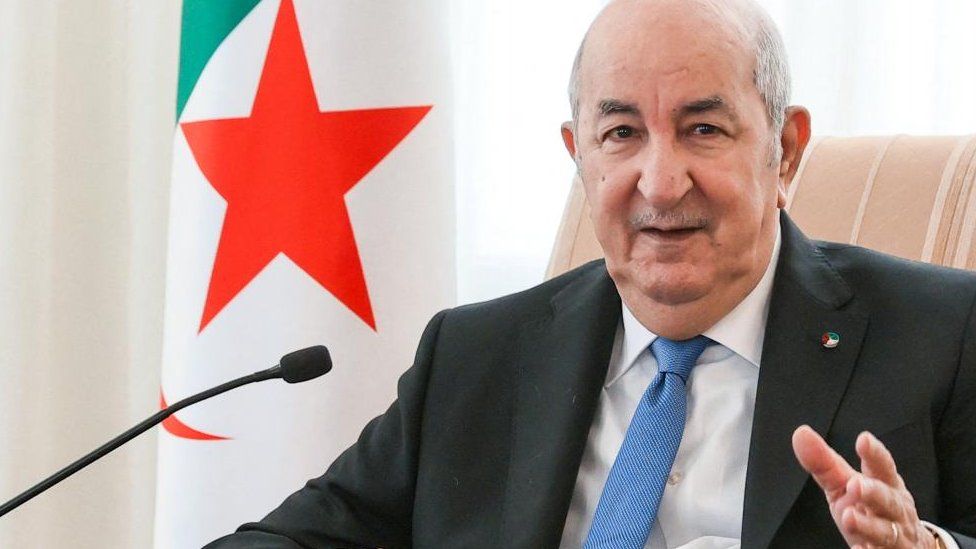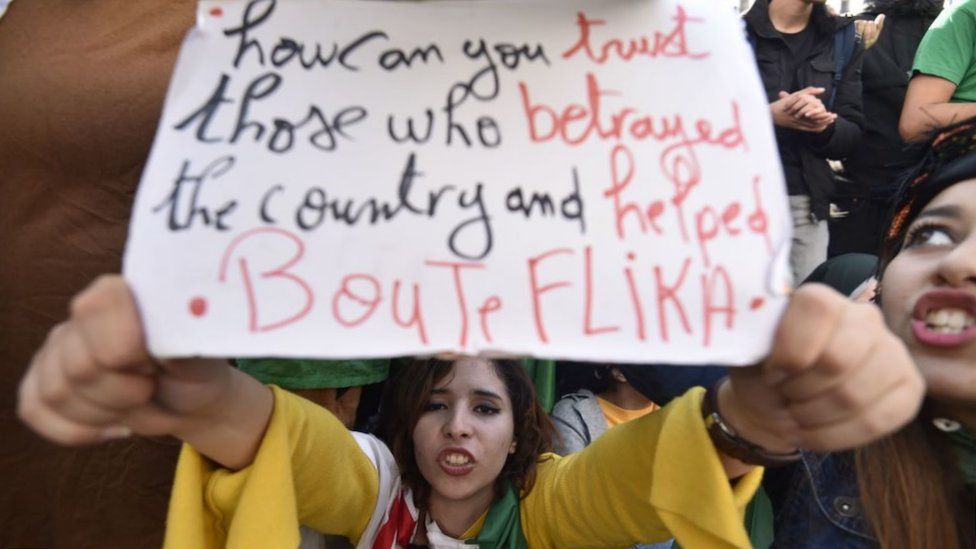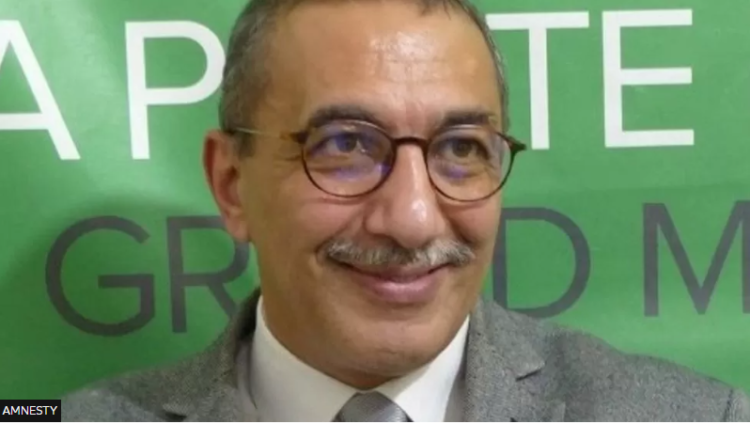It was almost midnight Christmas Eve when veteran Algerian journalist Ihsane el-Kadi was taken by plain-clothes police officers from his home and driven to the headquarters of the political police in the capital, Algiers.
The circumstances of his arrest as recounted by his daughter are hauntingly familiar to independent journalists and rights activists in authoritarian states around the world.
It started with a phone call around midnight and was quickly followed by a knock at the door on 24 December, Tin-Hinane el-Kadi told the BBC's Focus on Africa radio programme.
The six policemen had no arrest warrant and mentioned no charges, she said.
He was then handcuffed and bundled into a police car and taken to witness the shutting down of the offices of his media enterprise. Staff were sent home, the equipment confiscated and the premises sealed.

Mr El-Kadi had established Maghreb Emergent and Radio M some 10 years ago. They are known to be among the diminishingly small number of independent media outlets in the country.
Six days later he appeared before an investigating magistrate who ordered his "preventative detention".
His lawyers were unable to submit their objection to his arrest and the shuttering of his media company because the date of the session had been changed without them being informed.
The charges against him bear the hallmark of a repressive state - undermining national unity and stability, spreading fake news and receiving funds without permit.
Lawyers denied
International rights groups have denounced the arrest of Mr El-Kadi as a gross violation of his human rights and called for his immediate release as well as the reinstatement of his media business.
His lawyers have blasted the action as a flagrant violation of the Algerian constitution and denial of his basic right to a fair trial, after they were denied the chance to question his arrest before the investigating judge.
This was not the first time Mr El-Kadi has faced the full force of the Algerian state.
But the immediate trigger for this arrest appears to have been an opinion piece he had published on his website - Maghreb Emergent - in which he speculated that President Abdelmadjid Tebboune , who is 77 years old, would like another term in office and discussed whether the military would approve of that.
That clearly outraged both the president and the military.
All Algeria-watchers agree that the country has never been a democracy since it gained independence in 1962.
Elections in Algeria are only for show, the sole purpose of which is to bestow a veneer of democratic legitimacy on the man anointed by the men in uniform behind closed doors.
That's precisely what the Algerians wanted to change when they took to the streets in 2019.

The protests erupted when the severely ill and wheelchair-bound former President Abdelaziz Bouteflika looked set to run for a fifth term after 20 years in power.
The protest movement, which came to be known as Hirak, succeeded in thwarting Bouteflika, who was forced to resign, and has since died.
A few of those around him were put on trial. But that was the end of it.
The Hirak wanted much more than the removal of the head of the state. They didn't want another choreographed election and window dressing.
They wanted a new political order with full democratic rights and rule of law enshrined not just in the constitution but also in practice.
They knew that to achieve that they would have to dismantle what the Algerians have come to call "le Pouvoir" - the network of complex web of ties between the security agencies and the business elite with the army at the centre. The system has been in place since independence.
Lacking organised leadership, along with arrival of the Covid-19 pandemic and growing repression, the Hirak more or less fizzled out. And the old order was firmly back in control.
What happened in Algeria was another version of what happened in other North African states, such as Tunisia, Egypt and Libya.
'Cosmic moment'
After the initial euphoria of what has come to be known as the Arab Spring, which saw the heads of states in the three countries toppled in 2011, there was no transition to full democracy - Libya remains mired in chaos, Tunisia, after a faltering start, has regressed, and in Egypt an army general is back in charge.
The old order has survived and the revolutionaries were either driven into exile, fell into apathy or quiescence.
Or as in the case of Mr El-Kadi, thrown into a detention centre.
On his Twitter feed the journalist had pinned the picture of a huge crowd that had gathered outside his office back in 2019 during the Hirak protests.
Underneath, he commented: "I wish everyone… to live once in their life this cosmic moment when the revolution of their dream… passes below their office window."
Sadly, for Mr El-Kadi, and all those who dreamt of free press and rule of law in Algeria and the rest of North Africa, it was a very brief cosmic moment.
Latest Stories
-
Shamima Muslim urges youth to lead Ghana’s renewal at 18Plus4NDC anniversary
10 minutes -
Akufo-Addo condemns post-election violence, blames NDC
17 minutes -
DAMC, Free Food Company, to distribute 10,000 packs of food to street kids
2 hours -
Kwame Boafo Akuffo: Court ruling on re-collation flawed
2 hours -
Samuel Yaw Adusei: The strategist behind NDC’s electoral security in Ashanti region
2 hours -
I’m confident posterity will judge my performance well – Akufo-Addo
2 hours -
Syria’s minorities seek security as country charts new future
3 hours -
Prof. Nana Aba Appiah Amfo re-appointed as Vice-Chancellor of the University of Ghana
3 hours -
German police probe market attack security and warnings
3 hours -
Grief and anger in Magdeburg after Christmas market attack
3 hours -
Baltasar Coin becomes first Ghanaian meme coin to hit DEX Screener at $100K market cap
4 hours -
EC blames re-collation of disputed results on widespread lawlessness by party supporters
4 hours -
Top 20 Ghanaian songs released in 2024
4 hours -
Beating Messi’s Inter Miami to MLS Cup feels amazing – Joseph Paintsil
5 hours -
NDC administration will reverse all ‘last-minute’ gov’t employee promotions – Asiedu Nketiah
5 hours

